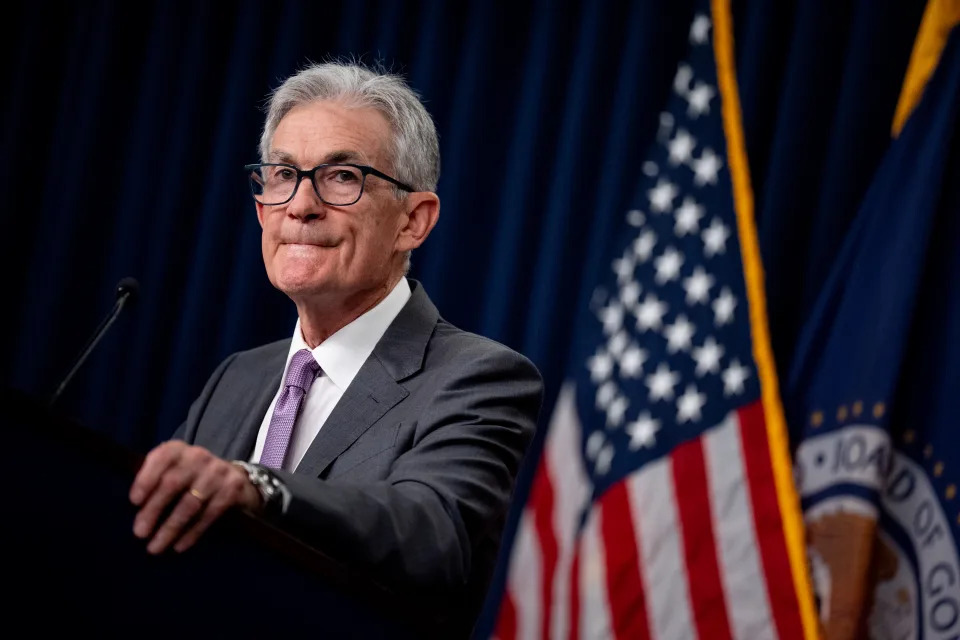This is The Takeaway from today's Morning Brief, which you can sign up to receive in your inbox every morning along with:
Stocks finished last week under pressure .
They began this week in the same state .
When the closing bell rang on Wall Street on Monday, the Nasdaq ( ^IXIC ) had shed 3.4%, deepening losses after tumbling into a correction last week.
The benchmark S&P 500 ( ^GSPC ) had lost 3%, while the Dow ( ^DJI ) fell 1,034 points.
The stars of the stock market show this year — the Magnificent Seven — lost some $652 billion in market capitalization on Monday alone.
Overnight carnage in Asian markets that sent US stock futures off as much as 6% in the predawn hours on Monday created a new strain of worry about the state of yen "carry trade."
The price of cryptocurrencies captured the breadth of the risk-off move in markets, as bitcoin ( BTC-USD ) and ether ( ETH-USD ) tumbled toward some of their largest one-week losses since the collapse of FTX . And several US online brokers appeared to struggle with connectivity issues in the early going Monday as investors rushed to check their portfolios — or perhaps move in or out of positions during the early chaos.
All manner of market commentators were in full flight on Monday. Some admonished those panicked about a return to prices seen just a few months ago. Others were spiking the football on an overhyped AI trade that appeared to finally be cracking under pressure.
Wall Street strategists proffered all manner of explanations, ranging from the unwind of the aforementioned yen carry trade, to Vice President Kamala Harris's better poll numbers against Donald Trump, to investors simply growing too complacent with concentration in the AI trade and low volatility. Even this weekend's news that Warren Buffett had trimmed his holdings in Apple got some run as an explanation .
But last week's market turn had a clear catalyst: the Federal Reserve .

And this remains the cleanest way to understand why the stock market's year of smooth sailing has come to an abrupt end. When the Fed held interest rates steady last week , investor reactions suggested the central bank had made a policy mistake by not taking the chance to lower rates before the economy showed signs of weakness.
A soft July jobs report heightened worries that rather than lowering rates from a position of strength (having tamed inflation without harming the labor market), the Fed would end up cutting from a position of need with the labor market quickly softening.
In a press conference last week, Fed Chair Jay Powell repeated the recent slowdown in hiring and uptick in unemployment is a "normalization" of the labor market. Investors appear less convinced.
So, with more than six weeks between now and the Fed's next regularly scheduled policy meeting, markets have been quick to put pressure on the central bank not to miss its next appointment.
Talk has quickly shifted from whether the Fed should cut rates on Sept. 18 to by how much the Fed should cut. (50 basis points is the current market expectation .)
Some even suggested Monday the Fed might consider cutting interest rates between its scheduled meetings, a move last made during the throes of the pandemic in March 2020.
A 15% drop in the Nasdaq would seem to bring with it less urgency. But one can never be too sure.

